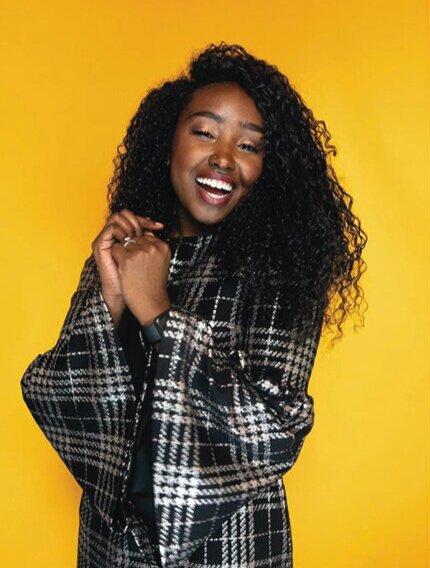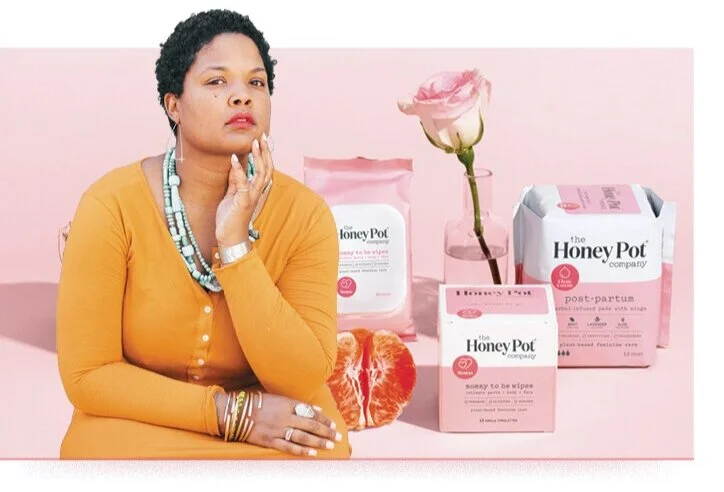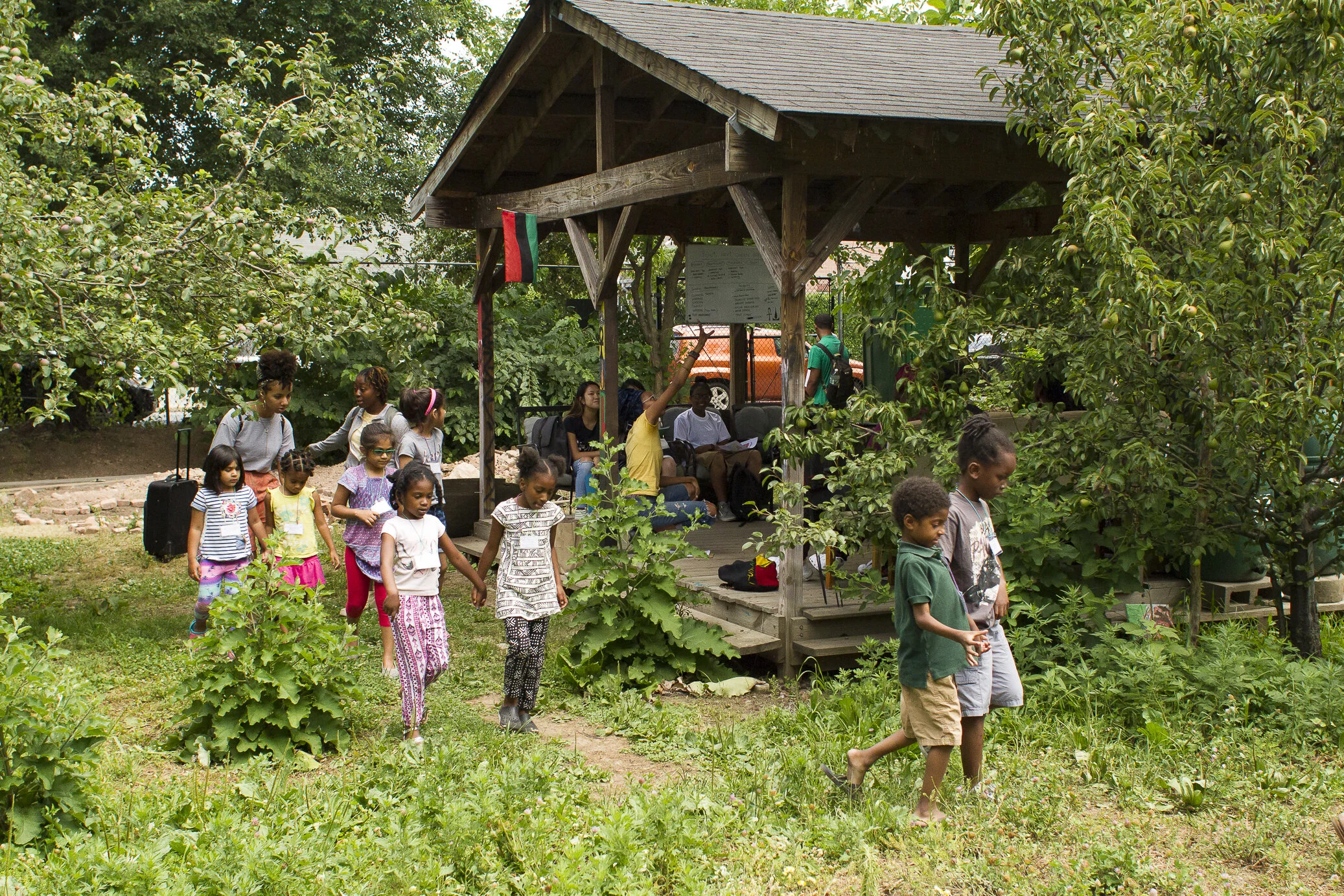Seed Capital & Expertise to Scale Smart: A Look Inside The New Voices Fund
Interview with Sundial Brands founder Richelieu Dennis and recipients of his $100M New Voices Fund that empowers women of color entrepreneurs, on growing business that support and impact black communities.
Written By: Bianca Jeanty
A quick Google search returns a multitude of definitions for the term “voice.” Ranging from an expressed opinion, a pitch or falsetto, your voice is acutely connected to being seen, heard and represented in a particular space. The New Voices Fund (NVF) was created to ensure that female entrepreneurs of color are financially empowered to put their voices behind their ideas, giving their businesses a fighting chance to compete and win. The $100 million fund was founded by Sundial Brands — which was purchased by Unilever in 2017 for an estimated $1.6 billion — best known for Shea Moisture, Nubian Heritage and Madam CJ Walker Beauty Culture products.
Under the guidance of Richelieu Dennis, the co-founder of Sundial and CEO of Essence Ventures; the NVF emphasizes business development and its impact on the Black community. Black businesses so often struggle to get out of the starting blocks due to fundamental issues like scalable models, operations infrastructure and access to capital. Without key resources, the difficulties faced put us at risk of having to sell our businesses — often to those not culturally aligned — or to shut our doors altogether. Dennis is doing his part to end that cycle through his work, and specifically through the NVF’s focus on consumer, technology and media/entertainment verticals.
In less than two years since the Sundial sale, through Essence Ventures, Dennis acquired Essence Magazine from Time Inc. and invested $23 million in weave and wig company Mayvenn; purchased the 28,000-square-foot New York estate formerly belonging to Madam CJ Walker, which he intends to transform into an incubator for Black women in business; and has invested in over a dozen women-of-color-owned businesses via the NVF.
I spoke with Richelieu Dennis and four founders whose companies are part of the NVF portfolio — Lip Bar, The Honey Pot & Co, Mented Cosmetics and NaturAll Club — on creative growth, entrepreneurial integrity and the New Voices Fund.
When did you realize you had a voice and what did you do about it?
Richelieu Dennis: Since I was a child, I’ve had a voice. I’ve never let anyone, any institution, structure or process make me feel like I didn’t have one. I focused on doing and saying what was right, even then. Over time, I realized that my voice has had more impact. The more you do to prove the validity of your voice, the louder and stronger it gets. So constantly working on building something great makes that voice louder.
The model in place to support women of color entrepreneurs through access, capital and expertise is strong and strategic. What are actual examples of how you’ve seen these aspects as missing links or keys to elevating a business?
Rich: We’re the perfect example. Sundial Brands has been in business in the United States for twenty-eight years. It took us sixteen years to get retailers to put our product on the shelves. We didn’t settle until our retail partners listened to our voice and gave us the opportunity we deserved. Selling our products in mom-and-pop shops or even in the streets showed our conviction to how we should be treated as consumers and business owners. But until that aligned, moving into those environments that disrespected what we were about was a no-go. Through the years, the lessons learned highlighted some inherent structural challenges that we as Black and minority entrepreneurs face.
Initially, we saw capital as the only way to think about starting and building a business. That’s just a part of it. And just because our access to capital was limited didn’t mean we lacked high aspirations. In our case, we were running into challenges, including financial opportunities with unfavorable terms. Creativity with our resources directed us to focus on getting expertise. We said to ourselves, “Let’s look at people who did what we wanted to do and make it happen.”
The NVF has supported phenomenal companies like The Lip Bar, Mented Cosmetics, The Honey Pot Co. and Naturall Club. What made them stand out and what are the reasons why a business may not receive funding from NVF?
Rich: There are a few areas where we hone in: we want to understand who you are as a person and entrepreneur, why your product is important to the community and the economics.
Integrity and character: These are the commonalities between all the companies we look to invest in. Their passion, commitment and the ability to overcome challenges are the top factors for us. It’s those things that an entrepreneur embodies along with an extremely strong dose of fortitude and character.
Value to the Community: The NVF looks at businesses that are adding value to our community. Not just a fad or trend, but why is your offering valuable to your consumer and the community? We need people that have critically thought through their businesses, made their own investments of time and money, and put their blood sweat and tears into this. It’s not enough to just think about it really hard. Tell us how far you’ve dug into the root of your business and market.
The Actual Product: The third thing we analyze is the actual product. Does it actually work? What’s the consumer experience? From there, we do an in-depth evaluation into the product’s market and the economic model you’ve backed it with. Nonetheless, the first two pieces is what gets you in the door. The third piece is what we expect you to have.
This article is from the Money & Power Issue of our Journal
Money, power, respect and the most beautiful and honest representation of Black women in the history of print.
A topic not often discussed is the dynamic between receiving capital and managing it long-term. With today’s extraordinary cohort of entrepreneurs, we’re often the first to go on this journey in our families. Tormented with the fear of risk, bankruptcy and failure, what’s a tangible economic philosophy that can combat these financial demons?
Rich: One of the challenges is recognizing that we didn’t necessarily grow up where financial literacy was easily visible. Regardless of the access, that doesn’t mean we’re not great entrepreneurs. We just didn’t have the same opportunities or build the skills to support being an entrepreneur. That’s where our model comes in. We have teams that provide that guidance and backing to help us with our processing and systems. It’s not just about getting a check. It’s minimizing costly mistakes by working with the best experts in the fields in finance, HR and supply chain to help guide how you invest the dollars that were entrusted for you to grow.
Ladies, congratulations on being funded! As women of color, we often teeter between excellence and pressure while reaching for an opportunity. Tell us your approach for ensuring you stand out amidst the competition when pitching.
Beatrice Espada of The Honey Pot Co: I try to always stay ahead by relishing opportunities as they present themselves. I try not to overthink things, see them for what they are and jump on them. It can be a double-edged sword, but four times out of five, things truly work out for me.
Muhga Eltigani, NaturAll Club
KJ Miller of Mented Cosmetics: I remember in the early days of pitching, everyone said how important it was to tell a good story. That's certainly true — investors want a story they can get excited about — but as a woman of color I don't have the privilege of skating by with story alone. It's having a story combined with strong traction that really makes you stand out. The good news is, traction can take many forms. When we first started pitching, we focused on our social media followers and influencer relationships — now we focus on revenue — but we always knew the story was only as strong as our ability to show people had bought in, especially in the beauty market. So I don't necessarily believe in saturated markets, I believe in segmentation and talking to the right crowd.
Muhga Eltigani of NaturAll Club: Nothing speaks louder than traction. Increasing your active users or revenue month over month is the best way to stand out. Even if someone doesn’t understand your market, your demographic, or even your product; traction shows that you are onto something and it usually warrants a closer look.
How has access, capital or expertise taken your business to the next level?
Melissa Butler of The Lip Bar: Access has opened doors to opportunities and/or relationships that would have taken us much longer to create and the expertise is everything. No one just knows how to run a business. It’s a ton of A/B testing, trial and error and risk involved — so having expertise is invaluable as it relates to saving time and money.
Beatrice Espada: The capital has allowed me to move toward scale, invest in the necessities like branding, marketing, hiring staff, buying inventory and beyond. Expertise is helping us to build the right infrastructures that will support and sustain the business. Not making costly mistakes has helped confirm we are on the right track and have an upward trajectory.
Muhga Eltigani: Capital allows us to expand our team and double down on the channels that we know are driving our growth. Expertise allows us to see the outcome of a potential decision from another angle, and elevates our approach to problems with wisdom learned from past experiences.
So, let's say I'm an entrepreneur that has applied for the NVF on the website. From your experience, what happens next and what did you do outside of applying to the NVF to increase your chances of receiving funding?
KJ Miller: The best thing you can do to increase your chances of raising capital is network, network, network. People can't invest in startups they don't know about, so you should always be in sales mode — whether you're at a happy hour, a networking event, panel or just with friends. Get on LinkedIn. Find out how you're connected to the leaders in NVF and other funds, and work those connections.
Beatrice Espada, The Honey Pot Company
Beatrice Espada: Think through your network. Who do you know that knows someone that knows the person you have to talk to at NVF? Relationships are of massive importance and can make all the difference. If you don’t have a network, be relentless, make phone calls, show up on LinkedIn, always be at the right events... be present to the funding.
Muhga Eltigani: For some, an online application is all it takes to get them in the door. For me and most, that is not the case. To reach NVF, I did what I always do: find a mutual connection to give me a warm introduction. Here’s one of the easiest ways to do it: 01. Read articles on the person or fund you seek to meet and make a spreadsheet of names you find associated in your articles. 02. Add those names on LinkedIn and see if you have any mutual connections. 03. Ask mutual connections if they know that person well enough to give you an intro. (Depending on your degree of connectivity, you may have to have a friend introduce you to another friend, who can then introduce you to that person.)
Firms like NVF receive thousands of cold emails so it's refreshing for them to receive an email from a name they recognize. A warm introduction increases the chances of your application to be reviewed more closely.
“What got you to growth won't get you to scale.” There are a variety of business priorities that often get confused. For example, what’s the difference between growing your business and scaling your business, in your experience?
Beatrice Espada: Growing your business can be defined as slow or fast growth. For instance, if you want to grow the business at a 5% clip year-over-year, relatively that can be impressive. Scale is going from 0 to 100 with strategy and execution, but doing it quickly. In my mind, scale is going to a finish line. Either business strategy requires stealth focus and execution.
Melissa Butler: Growing versus scaling is the same as working in the business versus on the business. However, what got you to growth won't get you to scale. You can grow a business on a shoestring budget with very little expertise. Scaling is “a horse of a different color,” as my mother would say. Scaling requires strategy, funding, support and a myriad of other tactics to build something sustainable.
Muhga Eltigani: I started out by growing my business using tactics that don’t “scale”: activities that take a lot of time and investment. For example, I called every person who ordered our products, knocked on people’s doors and passed out flyers on the street. It took me so much time and energy to get and keep my first few customers, but it was necessary!
Melissa Butler, The Lip Bar
From there, my job has been to continuously decrease the time, energy and money that it takes to acquire a customer, while simultaneously figuring out how to get that customer to come back again and again.
Pretty soon, I started building mini “machines” through sales funnels that I can double down on to scale!
Tell us a moment that being a woman of color entrepreneur made you extremely proud. How do you foresee being funded by the NVF as a way to create more powerful moments?
KJ Miller: I'm proud every moment of every day to be a woman of color entrepreneur. I've had to do more with less, and while I don't wish that on others, I do know it's made me scrappier, stronger and a better founder. I'm also extremely proud to be a part of the NVF family — the portfolio companies have already begun putting our heads together on ways to collaborate and ensure we all grow.
KJ Miller, Mented Cosmetics
Melissa Butler: When The Lip Bar celebrated our fifth year anniversary, Christen Devani, who owns a lip balm line called Polished Puckers, brought me flowers and thanked me for inspiring her. It was such a beautiful moment to see someone so young follow their dreams with steadfastness. It inspired me to keep going so I can be a source of access, capital and expertise for the next generation.
Muhga Eltigani: I find that the entrepreneurs most willing to give me tips, resources, and help are women of color. I am so proud to be a part of a community that encourages each other, especially in an industry where so few of us get significant funding. NVF’s funding is a catalyst to gain resources and a network of incredible entrepreneurs. The most meaningful thing about receiving funding from NVF is the fact that I can connect my network and pay it forward.











